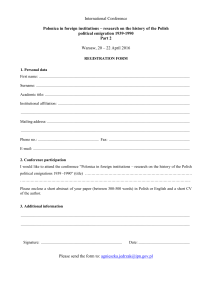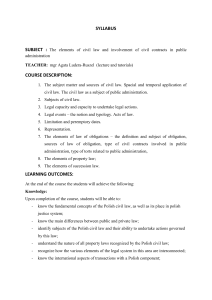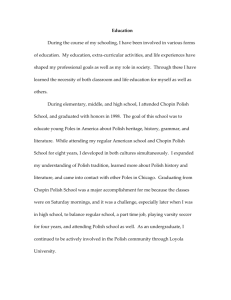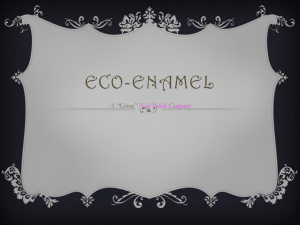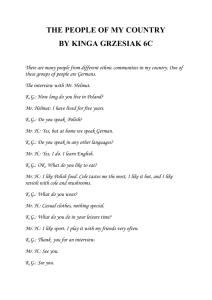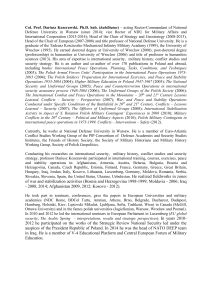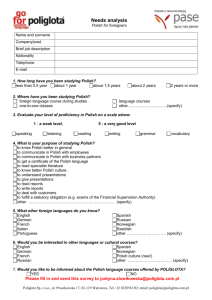UCL School of Slavonic and East European Studies
advertisement
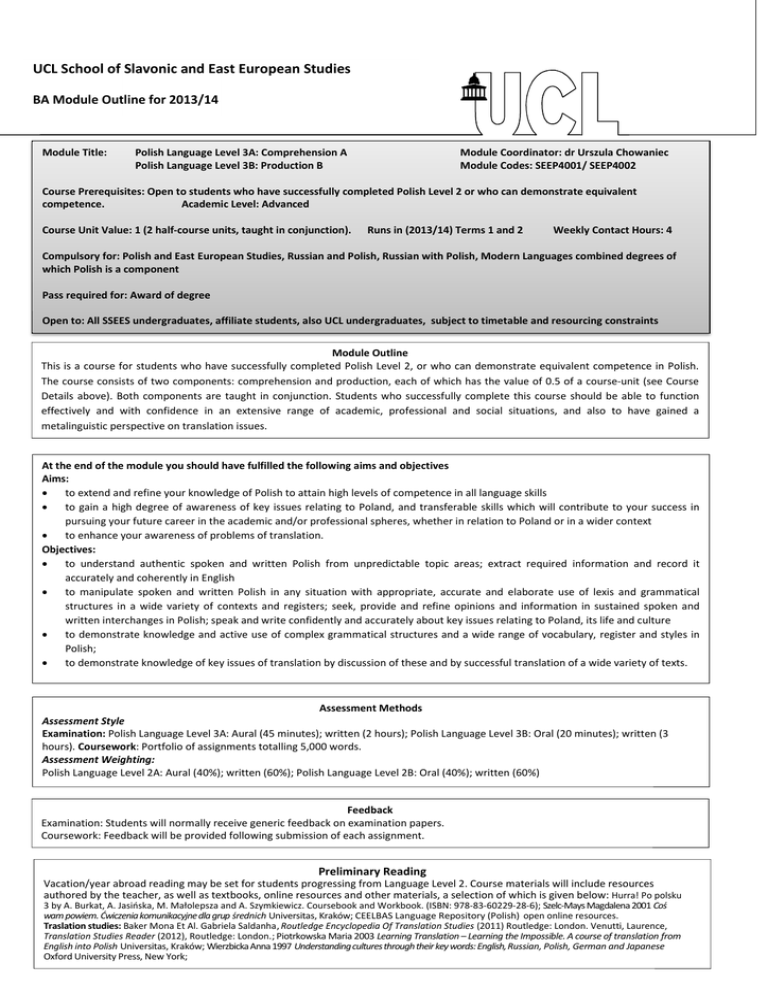
UCL School of Slavonic and East European Studies BA Module Outline for 2013/14 Module Title: Polish Language Level 3A: Comprehension A Polish Language Level 3B: Production B Module Coordinator: dr Urszula Chowaniec Module Codes: SEEP4001/ SEEP4002 Course Prerequisites: Open to students who have successfully completed Polish Level 2 or who can demonstrate equivalent competence. Academic Level: Advanced Course Unit Value: 1 (2 half-course units, taught in conjunction). Runs in (2013/14) Terms 1 and 2 Weekly Contact Hours: 4 Compulsory for: Polish and East European Studies, Russian and Polish, Russian with Polish, Modern Languages combined degrees of which Polish is a component Pass required for: Award of degree Open to: All SSEES undergraduates, affiliate students, also UCL undergraduates, subject to timetable and resourcing constraints Module Outline This is a course for students who have successfully completed Polish Level 2, or who can demonstrate equivalent competence in Polish. The course consists of two components: comprehension and production, each of which has the value of 0.5 of a course-unit (see Course Details above). Both components are taught in conjunction. Students who successfully complete this course should be able to function effectively and with confidence in an extensive range of academic, professional and social situations, and also to have gained a metalinguistic perspective on translation issues. At the end of the module you should have fulfilled the following aims and objectives Aims: to extend and refine your knowledge of Polish to attain high levels of competence in all language skills to gain a high degree of awareness of key issues relating to Poland, and transferable skills which will contribute to your success in pursuing your future career in the academic and/or professional spheres, whether in relation to Poland or in a wider context to enhance your awareness of problems of translation. Objectives: to understand authentic spoken and written Polish from unpredictable topic areas; extract required information and record it accurately and coherently in English to manipulate spoken and written Polish in any situation with appropriate, accurate and elaborate use of lexis and grammatical structures in a wide variety of contexts and registers; seek, provide and refine opinions and information in sustained spoken and written interchanges in Polish; speak and write confidently and accurately about key issues relating to Poland, its life and culture to demonstrate knowledge and active use of complex grammatical structures and a wide range of vocabulary, register and styles in Polish; to demonstrate knowledge of key issues of translation by discussion of these and by successful translation of a wide variety of texts. Assessment Methods Assessment Style Examination: Polish Language Level 3A: Aural (45 minutes); written (2 hours); Polish Language Level 3B: Oral (20 minutes); written (3 hours). Coursework: Portfolio of assignments totalling 5,000 words. Assessment Weighting: Polish Language Level 2A: Aural (40%); written (60%); Polish Language Level 2B: Oral (40%); written (60%) Feedback Examination: Students will normally receive generic feedback on examination papers. Coursework: Feedback will be provided following submission of each assignment. Preliminary Reading Vacation/year abroad reading may be set for students progressing from Language Level 2. Course materials will include resources authored by the teacher, as well as textbooks, online resources and other materials, a selection of which is given below: Hurra! Po polsku 3 by A. Burkat, A. Jasińska, M. Małolepsza and A. Szymkiewicz. Coursebook and Workbook. (ISBN: 978-83-60229-28-6); Szelc-Mays Magdalena 2001 Coś wam powiem. Ćwiczenia komunikacyjne dla grup średnich Universitas, Kraków; CEELBAS Language Repository (Polish) open online resources. Traslation studies: Baker Mona Et Al. Gabriela Saldanha, Routledge Encyclopedia Of Translation Studies (2011) Routledge: London. Venutti, Laurence, Translation Studies Reader (2012), Routledge: London.; Piotrkowska Maria 2003 Learning Translation – Learning the Impossible. A course of translation from English into Polish Universitas, Kraków; Wierzbicka Anna 1997 Understanding cultures through their key words: English,Russian, Polish, German and Japanese Oxford University Press, New York;
